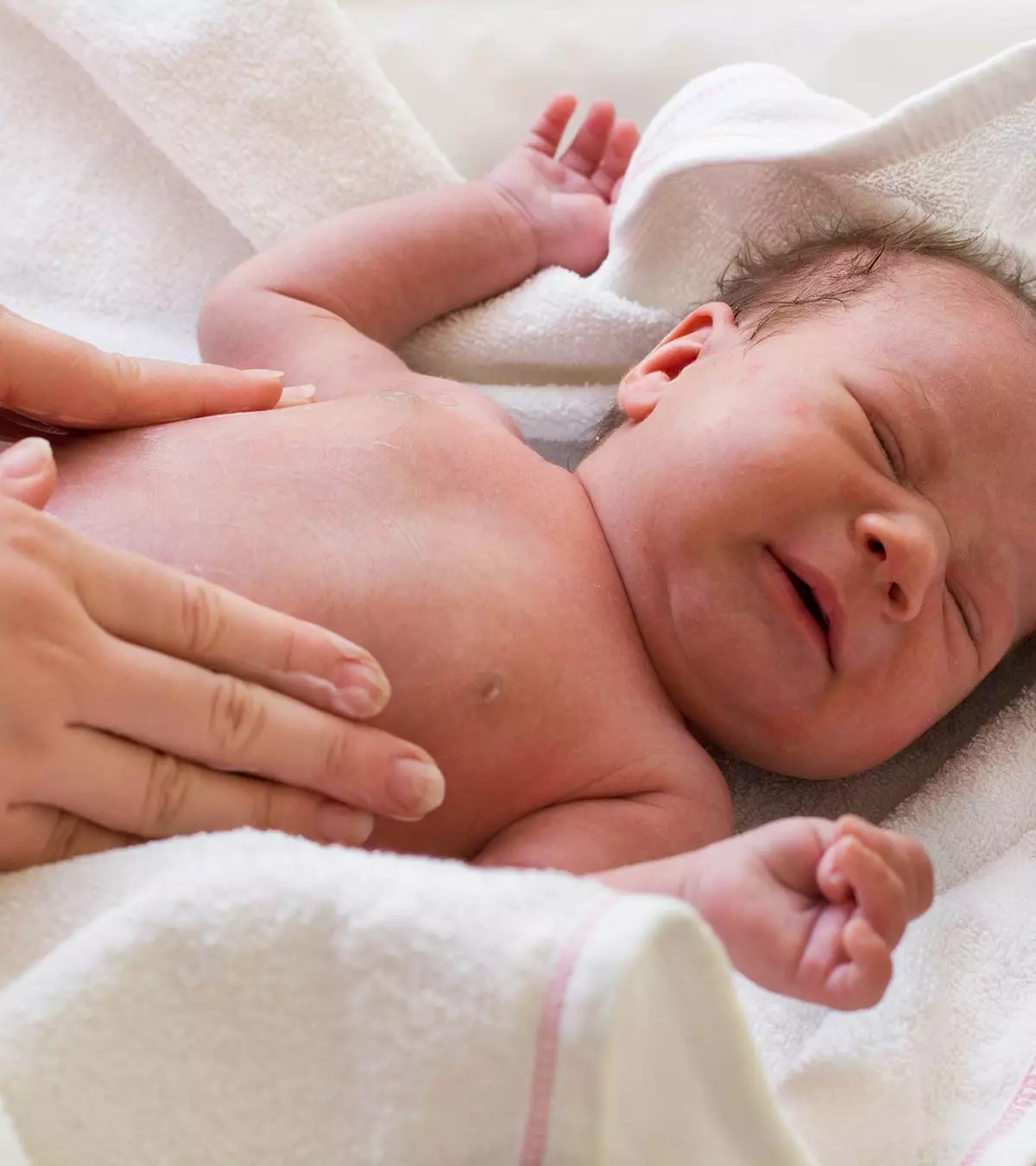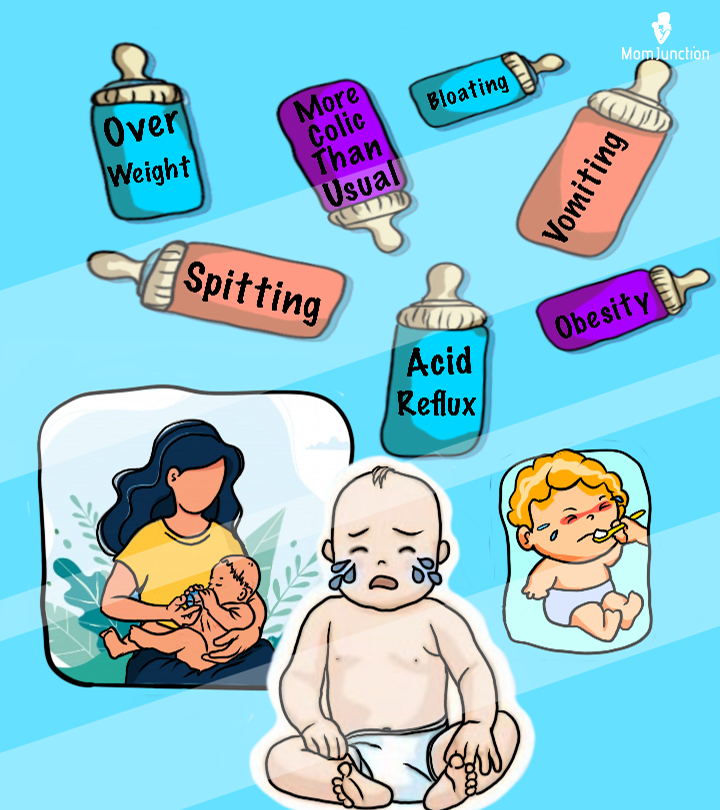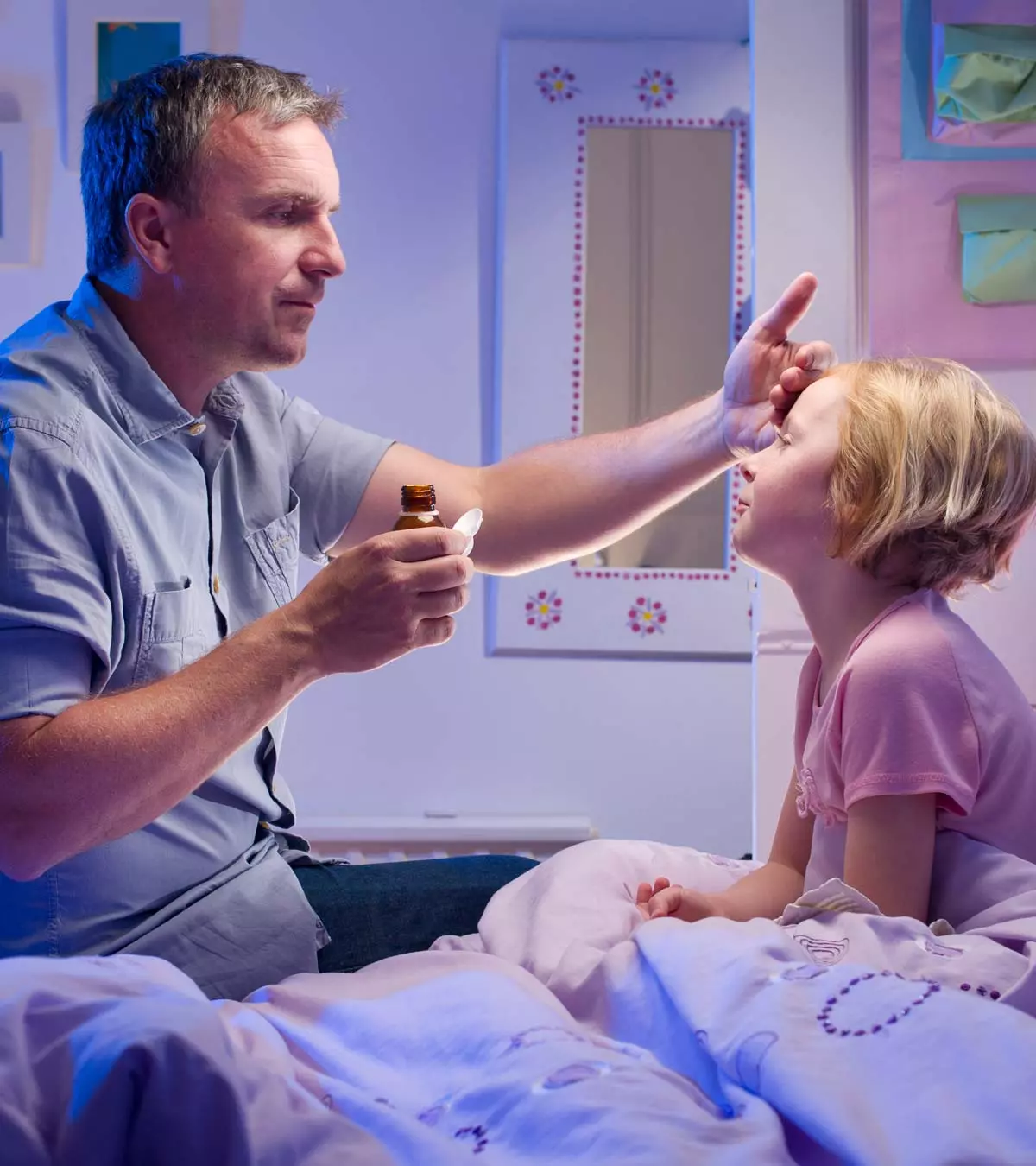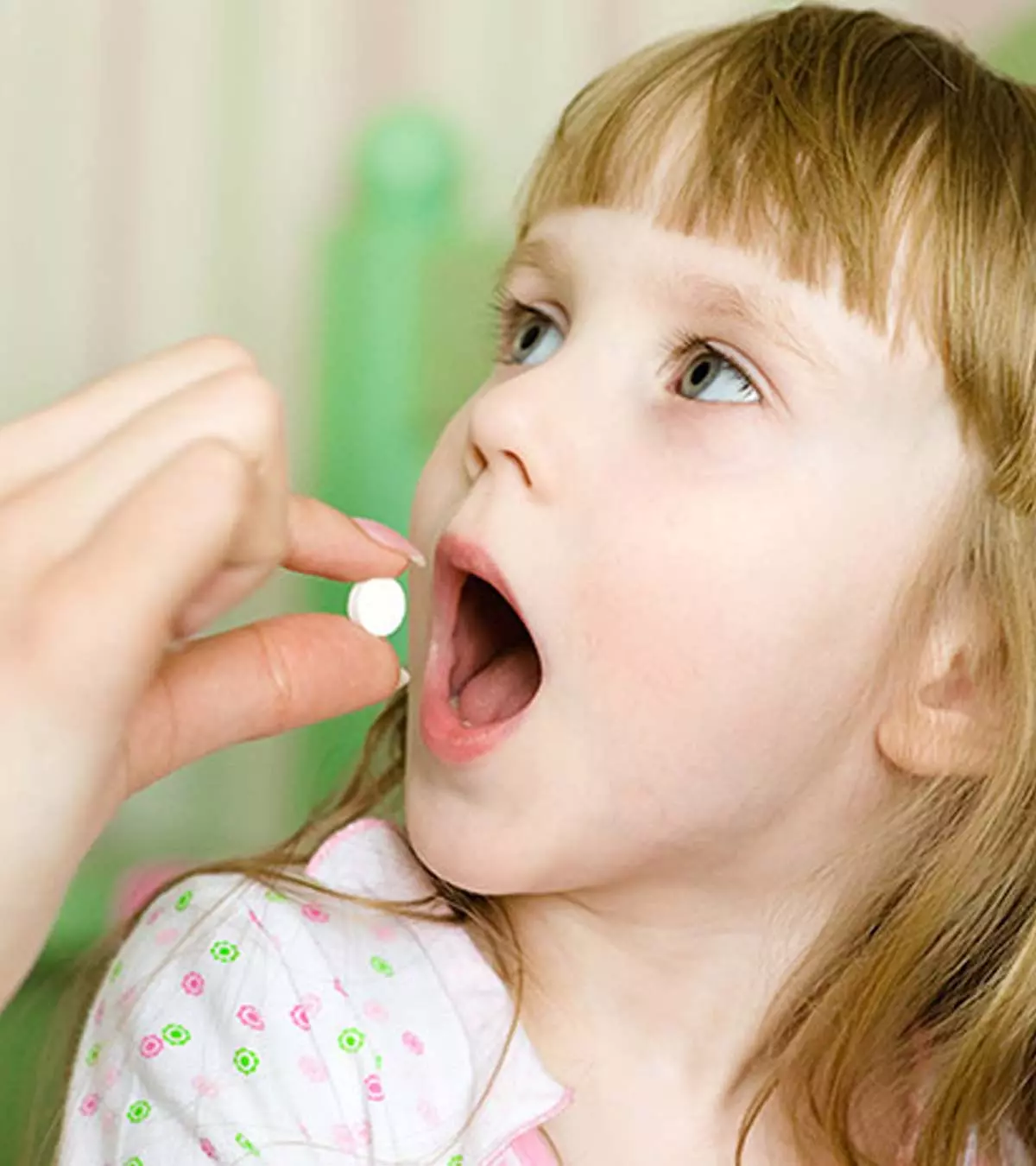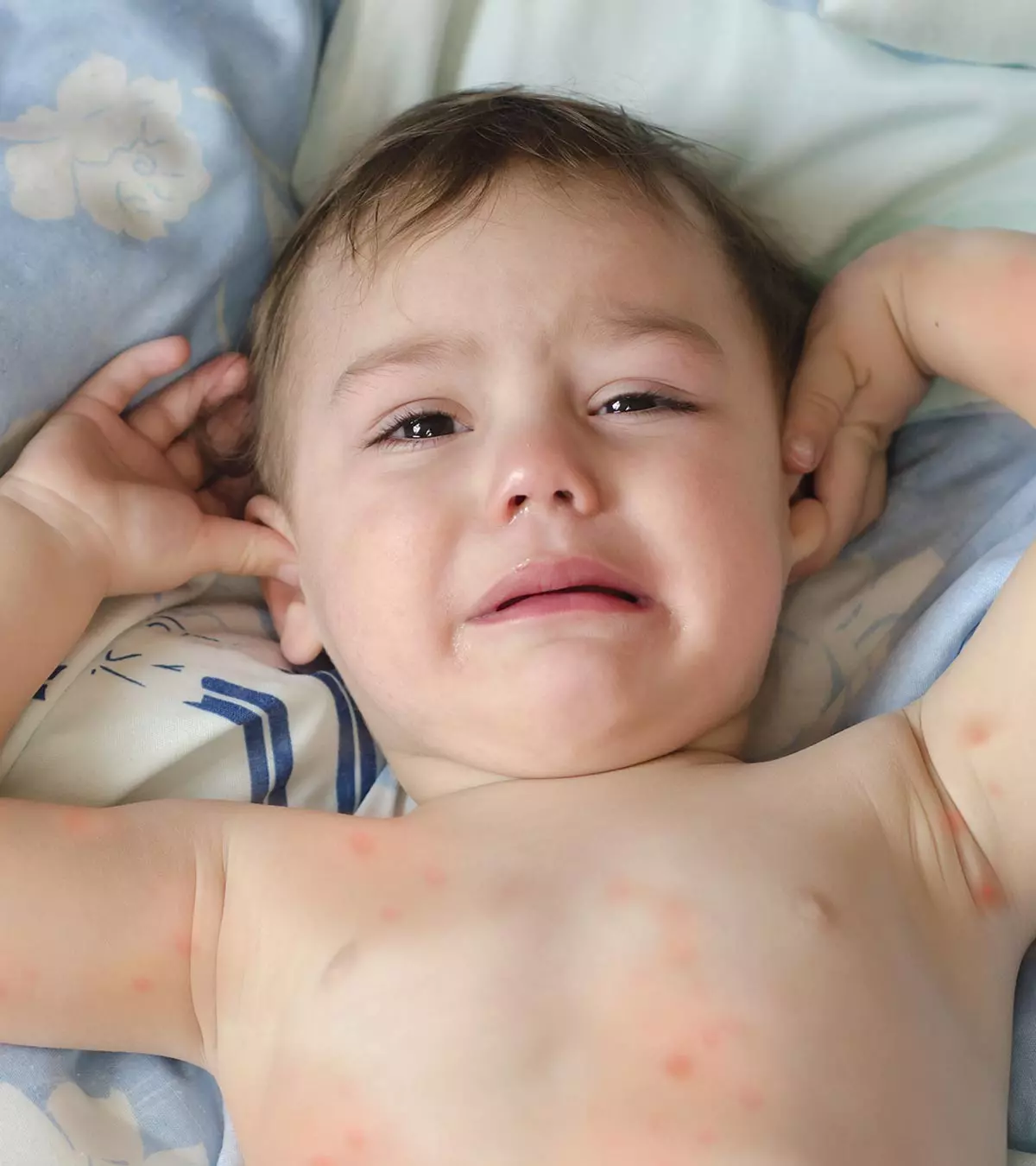
Image: Shutterstock
As a parent, it is worrying about managing spider bites in toddlers. Since children are active and keep exploring new places, they may get these bites frequently; however, most spiders are not poisonous. If you notice a spider or insect bite growing rapidly or giving rise to sweating or rapid pulse symptoms, you should consult a healthcare provider. Moreover, you should also exercise caution to prevent bites from other insects and pests in children. The post discusses the symptoms of spider bites in children, their treatment, and ways to prevent them.

Key Pointers
- Although most spiders are non-poisonous, their bites can result in redness, itching, pain, and swelling.
- Cleanse the affected area using cold water and an antiseptic solution.
- Apply antibiotic ointment and refrain from scratching to prevent swelling.
- Regularly spray insecticides to deter spiders and keep them away from children.
- If the bite marks have spread or the child experiences sweating, exhaustion, stomach cramps, or a rapid pulse, it is recommended to seek medical attention.
Facts About Spider Bites
Spiders are not insects, but they belong to the arachnida class of invertebrate animals.
They are not aggressive by nature, and they only bite when they feel they are in danger! All spiders contain some amount of venom to catch their prey. In most cases, spider bites do not lead to serious health complications (1).
 Quick fact
Quick factSpider Bite Symptoms In Toddlers

Unfortunately, parents often fail to understand if the scar or wound on a child’s skin is due to a spider bite. They may initially mistake the scars to be ant bites. If the toddler cannot speak or identify spiders, it can make detecting a spider bite even more difficult. You need to keep your eyes open for some commonplace symptoms of spider bites (1) (2):
Redness of the skin, itching, pain, and swelling are common symptoms of insect bites. However, you should be cautious if you find the insect bite mark on the toddler’s skin is spreading, or there is drainage from the spot. If the pain does not subside within a few days, that can be a cause of concern too. After being bitten by a venomous spider, the toddlers may exhibit signs of distress like breathing difficulty along with scars on his skin.
Experts from the US Centers for Disease Control and Prevention (US CDC) indicate that in the US, two spiders, the brown recluse and the black widow, may cause harm to humans (3). Toddlers bitten by a brown recluse spider or a Black widow spider may suffer from scars on the skin. They may also exhibit the following symptoms in extreme cases:
- Stomach cramps
- Sweating
- Exhaustion
- Rapid pulse
 Quick fact
Quick factDr. Heather Edgley, M.D., from East Tennessee Children’s Hospital Emergency Department, explains how parents can identify and manage spider bites in toddlers and children, “Parents may not always know when their child has been bitten by a spider, as it’s rare to see the offending insect. Instead, they might notice redness, pain, burning, or itching at the bite site. If the bite is small, there’s nothing to worry about. However, if a child experiences systemic symptoms like muscle cramps, abdominal pain, back pain, fever, malaise, or general discomfort, it may be time to seek medical care (i).”
How To Treat Spider Bites On Toddlers?
Here is the first aid you can give your toddler if they suffer from a spider bite (2) (4):
- Clean the spot of spider bite with cold water and an antiseptic solution.
- You may also apply an antibiotic ointment on the affected area. Some children may find relief from the stinging sensation with the application of ice on the bite.
- Instruct your toddler not to rub or itch the spot as it can lead to swelling and an increase in pain.
- You can ask your pediatrician to prescribe a painkiller for your toddler.
- If your child is suffering from severe discomfort, it is vital to take them to the hospital immediately.
- Although rare, certain spiders can be venomous; and if a person is bitten by a poisonous spider, they may require an antivenom prescribed by a doctor or healthcare specialist; however, it is crucial to note that the antivenom could be associated with certain adverse effects.
Dr. Edgley adds, “For smaller bites, parents can provide relief with cool or cold compresses, ice packs, or sometimes a warm compress. Over-the-counter medications like tylenol, ibuprofen, or benadryl can help with the discomfort or itching. If the bite is much bigger and there’s a lot more pain, especially in the case of a black widow spider bite, seeking medical care is essential.”
When To Seek Medical Care
Spider bites are usually harmless but may trigger severe reactions, particularly in young children or individuals with weakened immune systems. Seek immediate medical attention if your toddler has any of the following symptoms after a spider bite (5) (6):
- Intense pain at the bite site
- Signs of an allergic reaction or blistering
- Pain spreading to nearby areas
- Pain in the chest or abdominal area
- Swelling, redness, or itching around the bite
- Fever, chills, or breathing difficulties
- Headache, nausea, or vomiting
- Skin discoloration, such as a blue-gray mark or darkened bite area
Ways To Prevent Spider Bites In Toddlers

Prevention is always better than cure. Raising awareness is an important step to protecting your toddler from spider bites.
Toddlers, out of playfulness and curiosity, can venture into areas where spiders form nests. These include attics, dusty staircases, etc. You cannot always keep an eye on them. However, you can ensure they wear shirts with long sleeves and socks while playing to protect them from spider bites. Experts suggest taking extra precautions by pulling up their socks and tucking their shirts into their pants to minimize the risk of bites (7).
To keep spiders away, store firewood away from the house and use insecticides regularly. Guide your child to thoroughly shake and clean their shoes when taking them from the garage or storage area. Ensure spare spaces like the basement or attic are kept clean. Remember to store these insecticides and sprays away from the reach of children (1) (5).
 Quick tip
Quick tipIt may be challenging to identify a spider bite in toddlers as itching, redness, or swelling is common for many insect bites. However, check with a doctor immediately if your child shows symptoms such as sweating, rapid pulse, stomach cramps, or the pain does not subside in a few days. Signs such as the bite mark spreading or discharge may indicate a spider bite. It is not always poisonous, so do not panic. Provide first aid as an emergency aid, but avoid experimenting with home remedies.
Frequently Asked Questions
1. What does a spider bite look like in a toddler?
Spider bites typically look like insect or bug bites in babies. These are red and itchy, with the presence of a small bump on the affected site.
2. What poisonous spiders can be found in a toddler’s environment?
Poisonous spiders that may be found in a toddler’s environment depend on the geographical location where you and your family are situated, as a wide variety of arachnids inhabit almost all habitats. Some poisonous spiders that dwell in human habitations include the Brown Recluse Spider, Yellow sac Spider, Wolf Spider, Black Widow Spider, and Funnel-web Spiders.
3. Can spider bites in toddlers cause allergic reactions or anaphylaxis?
Spider bites in toddlers can sometimes cause allergic reactions, but severe anaphylactic reactions are uncommon. The severity of a spider bite reaction can vary depending on several factors, including the spider species, the amount of venom injected, and an individual’s immune response (5).
4. How long do spider bites typically take to heal?
Most spider bites heal on their own within a few hours to a few days. However, if the bite is from a venomous spider, gets infected, or your child develops new symptoms after a day or two, it may take longer to heal and might need medical attention (9).
Infographic: Common Symptoms Of Black Widow Spider Bite In Toddlers
It is essential for parents to identify spider bites in toddlers, as it will help ensure prompt treatment. To help you with that, we present some common signs of black widow spider bites in toddlers in the infographic below. Save and share it with parents of other toddlers too.
Some thing wrong with infographic shortcode. please verify shortcode syntax
Illustration: Spider Bites In Toddlers: Facts Symptoms & Ways To Prevent

Image: Dall·E/MomJunction Design Team
Personal Experience: Source
MomJunction articles include first-hand experiences to provide you with better insights through real-life narratives. Here are the sources of personal accounts referenced in this article.
i. When To Worry About Spider Bites – Pediatric Expert Tips;https://www.youtube.com/watch?v=Bvd274CBYGw
References
- Spider bites.
https://my.clevelandclinic.org/health/diseases/16639-spider-bites - Brown Recluse and Black Widow Spider Bites in Children.
https://www.stanfordchildrens.org/en/topic/default?id=brown-recluse-and-black-widow-spider-bites-in-children-90-P02850 - Venomous Spiders at Work.
https://www.cdc.gov/niosh/outdoor-workers/about/venomous-spiders.html - Spider bite.
https://www.stlouischildrens.org/health-resources/symptom-checker/spider-bite - First Aid: Spider Bites; The Nemours Foundation.
https://kidshealth.org/en/parents/spider-bites-sheet.html - Spider Bites.
https://www.healthychildren.org/English/health-issues/conditions/from-insects-animals/Pages/Spider-Bites.aspx - Tips to prevent and treat bug bites.
https://www.aad.org/public/everyday-care/injured-skin/bites/prevent-treat-bug-bites - Kids Health Information: Insect bites and stings.
https://www.rch.org.au/kidsinfo/fact_sheets/Insect_bites_and_stings/ - Spider bites.
https://www.healthdirect.gov.au/spider-bites - About spider bites.
https://www.childrenshospital.org/conditions/spider-bites
Community Experiences
Join the conversation and become a part of our nurturing community! Share your stories, experiences, and insights to connect with fellow parents.
Read full bio of Dr. Neema Shrestha
Read full bio of Jessica Albert
Read full bio of Rohit Garoo
Read full bio of Shinta Liz Sunny








